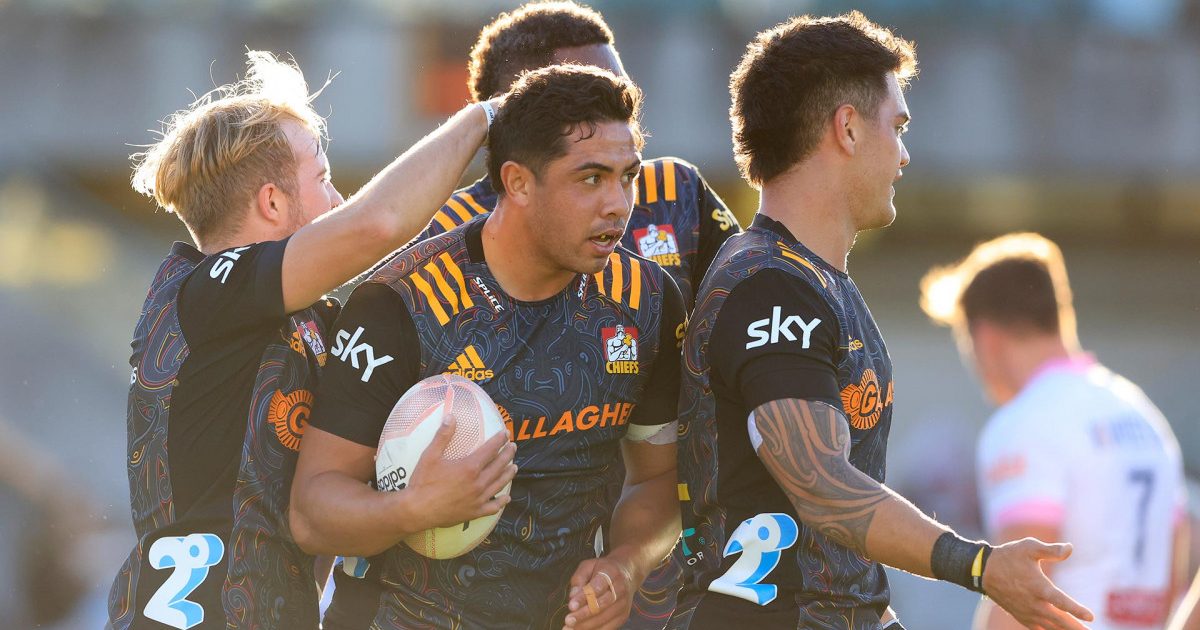Chiefs hold off Melbourne Rebels to pick up Super Rugby Trans-Tasman victory in Sydney

Two tries by Isi Naisarani wasn’t enough to boost Melbourne to their first win of the Super Rugby Trans-Tasman competition, falling short against the Chiefs in Sydney on Sunday afternoon.
Melbourne were unable to repeat the last round feats of Queensland over the Chiefs, with a 36-26 scoreline at Leichhardt Oval, where the match was relocated from Hamilton with the Rebels unable to travel to New Zealand.
Hulking No.8 Naisarani scored two first-half tries in his best performance of the year, and his timing couldn’t have been better with Wallabies coach Dave Rennie watching from the stands.
Melbourne started poorly and trailed 19-0 after 25 minutes with All Blacks centre Anton Lienert-Brown scoring a double.
It looked like it could turn into a horror show for the Rebels but the Australians rallied to lock up the match at 19-19 by halftime.
Naisarani’s first try came when he collected the spoils from a tighthead scrum pushover try.
Young Melbourne five-eighth Carter Gordon then showed some individual brilliance to kick ahead, regather and then off-load a no-look pass for centre Stacey Ili.
Naisarani barrelled over in the 39th minute after a quick tap for the Rebels to level.
Their momentum stalled early in the second half with the Chiefs running in two tries in nine minutes, with replacement Tiatia crossing for his double and then fullback Trask adding his second for the afternoon.
Rebels fullback George Worth looked to have scored in the 70th minute to close the gap to five points, however the TMO ruled that winger Andrew Kellaway obstructed the defence in the lead-up.
That ended up being Melbourne’s final hurrah, with the team left to rue a number of missed opportunities in their hunt for an elusive win.
Chiefs 36 (Tries to Kaleb Trask (2), Anton Lienert-Brown (2) and Chase Tiatia (2); 3 conversions to Bryn Gatland)
Rebels 26 (Tries to Isi Naisarani (2), Stacey Ili and Andrew Kellaway; 3 conversions to Matt To’omua)











































































